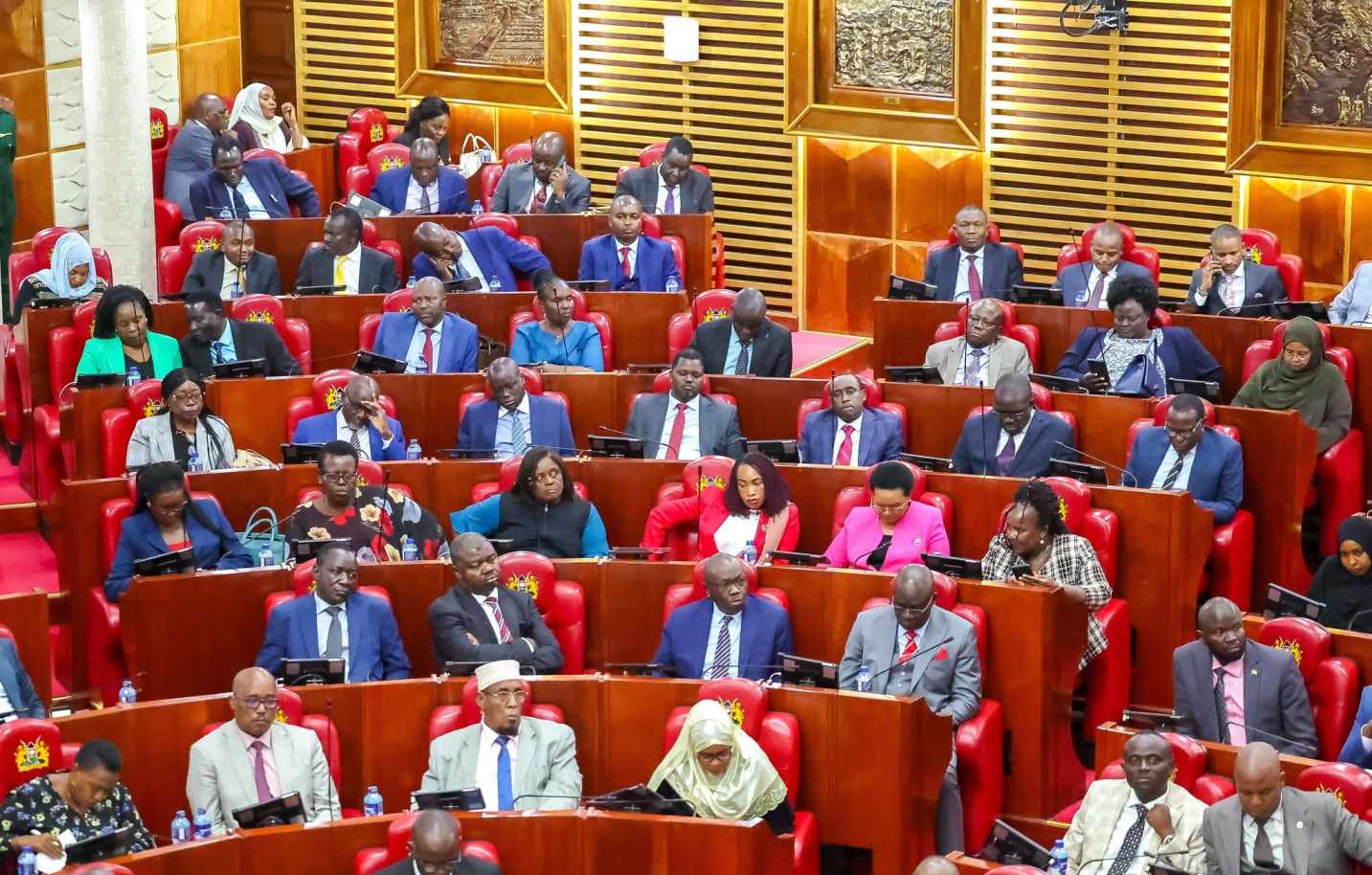Dispute over judges’ allowances escalates in Parliament

The confrontation followed the Auditor General’s report on the Judiciary’s financial statements for the year ended June 30, 2023. Auditor General Nancy Gathungu highlighted irregular domestic travel and subsistence allowances paid to top judicial officers, including the Chief Justice, Deputy Chief Justice, all judges, the Chief Registrar, Deputy Chief Registrar, chief magistrates, and staff in job groups PLS 16 and 17.
Parliament and the Judiciary are at odds over the setting of judges’ allowances, with lawmakers questioning why the institution determines pay independently of the Salaries and Remuneration Commission (SRC).
The dispute emerged during a Public Accounts Committee (PAC) session on Wednesday, where legislators raised concerns over what they described as unchecked payment of billions of shillings in taxpayer-funded perks.
Mathioya MP Edwin Mugo pressed judicial officers on who regulates these allowances.
“Who, then, regulates these allowances? Who sets the bar? Because an allowance could be as little as Sh200, but who checks that if someone decides to peg it at Sh1,000? How are these rates determined?” he asked.
Mugo also probed the methodology used, noting, “Do you benchmark, perhaps with the United Kingdom or other Commonwealth countries? How exactly? Because, you know, the SRC usually conducts surveys, looking at economic conditions and circumstances, including hotel rates, to arrive at a standard allowance. But then, who actually regulates this? Is it the Judicial Service Commission?”
The confrontation followed the Auditor General’s report on the Judiciary’s financial statements for the year ended June 30, 2023.
Auditor General Nancy Gathungu highlighted irregular domestic travel and subsistence allowances paid to top judicial officers, including the Chief Justice, Deputy Chief Justice, all judges, the Chief Registrar, Deputy Chief Registrar, chief magistrates, and staff in job groups PLS 16 and 17.
“The Salaries and Remuneration Commission (SRC) circular dated February 2, 2022, set out the applicable domestic travel and subsistence rates for all state and public officers. However, the Judiciary has been paying at rates higher than those authorised by the SRC,” the report noted, describing the payments as a breach of SRC guidelines.
In a letter dated July 23, 2019, tabled before PAC, then Chief Registrar Anne Amadi defended the contested allowances. The letter outlined resolutions from a Judicial Service Commission (JSC) meeting on July 22, 2019, revising daily subsistence allowances or per diems.
“The Judicial Service Commission at its meeting held on Monday, July 22, 2019, considered a proposal to review the subsistence allowance/per diem payable to judges, judicial officers and staff and approved the same, noting the following amendments,” Amadi wrote.
The revised structure set daily rates at Sh30,000 for the Chief Justice and Deputy Chief Justice, Sh25,000 for all judges and the Chief Registrar, and Sh20,000 for chief magistrates, the Deputy Chief Registrar, the Chief Kadhi, and staff in job groups PLS 16 and 17. Rates for other officers remained unchanged. Amadi directed the Human Resource Director to enforce the new allowances, copying the memo to the Chief Human Resource Officer (Welfare) for immediate implementation.
Current Chief Registrar Winfridah Mokaya, also the Judiciary’s accounting officer, defended the allowance system, explaining that JSC had benchmarked rates against those used by the Parliamentary Service Commission (PSC).
“Let me just confirm that the Judicial Service Commission benchmarks particularly with the Parliamentary Service Commission. So the rates we apply are comparable to what obtains in the PSC,” Mokaya told the committee.
MPs, however, protested, arguing that the PSC uses its own benchmarks, many of which have been nullified by SRC.
Legislators said the Judiciary could not act as though it is exempt from public service remuneration rules. Samburu West MP Naisula Lesuuda asked, “I would like to know from the Registrar what exactly you based your position on to come up with these rates. Was it that ruling, and if so, what did the ruling say? Or was it solely the Constitution? Initially, were you guided by SRC rates, and at what point did you stop using them, if at all you ever did?”
Mokaya defended the Judiciary, citing Article 172 of the Constitution, which empowers JSC to “review and make recommendations on the terms and conditions of service of judges and judicial officers.” She explained that JSC conducted its own benchmarking before SRC released its rates.
“Let me say we have never used the SRC rates. The Judicial Service Commission (JSC) interpreted its mandate as provided for under article 172 vis-à-vis article 230 of the Constitution, which gives the mandate to SRC. So they interpreted their mandate and, after benchmarking, set the applicable rates, so it is later that SRC provided the rates,” she said.
“So the SRC rates came after the Judicial Service Commission had set the rates, and then the issue came up in court, and again, it affirmed the position that the Commission had taken,” she added.
Auditor General’s Director of Audit Philip Cheboiwo challenged the Judiciary’s approach, noting that the institution already nominates a member to SRC to represent its interests.
“But again, it begs the question, the Judiciary also sits in the SRC as a member. Could it be that they see themselves as superior to the Public Service Commission? If you are part of such a commission, then fairness should apply across the entire public sector,” he said.
The debate comes amid growing scrutiny over state officers’ allowances, with taxpayers footing large bills for perks ranging from travel to sitting fees. PAC has now demanded that the Judiciary provide the Supreme Court ruling cited as legal justification for its stance, along with details on how the benchmarking was carried out.
